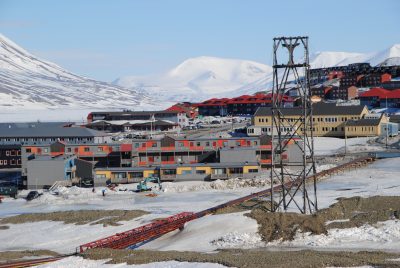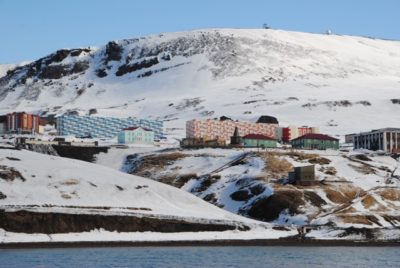Foreign citizens living and working in Svalbard who have no legal residence permission in mainland Norway have suddenly lost their rights to vote in local elections and be elected to the local governing council. The Norwegian government decided on Friday to immediately start linking Norwegian immigration requirements to voting rights in the Arctic archipelago, over which it has authority.

The Svalbard Treaty that Norway administers allows anyone to move to Svalbard, as long as they can support themselves financially and not create problems for the small community of around 2,500 residents. Until now, Norwegian authorities have also allowed everyone living in Svalbard to participate in local politics, vote in local elections and serve as elected representatives.
In Norway itself, however, foreign citizens must obtain working and residence permission and can only vote in local elections after three full years of legal residence. Only Norwegian citizens, meanwhile, are allowed to vote in national elections.
Newspaper Svalbardposten reported that those laws are now being applied to Svalbard by Norway’s Labour-Center government that was elected last autumn. Justice Minister Emilie Enger Mehl of the Center Party claims it’s necessary in order for Svalbard’s local government “to maintain ties to the mainland and ensure sufficient knowledge and understanding of laws applying to Svalbard.”
Mehl also acknowledged that Norway wants to maintain “a Norwegian society” in Svalbard that’s attractive for Norwegian families. She’s worried that Svalbard’s demographics have been changing in recent years, especially after most of its coal mining industry was shut down under pressure from the UN and climate activists.
Many of those now living in Svalbard have no ties to Norway, have moved to the Arctic islands in order to work in often controversial tourism-related ventures, and are more transient. “In recent years there’s been considerable numbers of people moving from abroad to Longyearbyen,” Mehl told Svalbardposten. That may continue, but now they won’t be able to vote.

Svalbard also has a small Russian population living in the mining town of Barentsburg, reachable only by boat or helicopter from Svalbard’s main settlement of Longyearbyen. It was unclear whether current tensions with Russia over its invasion of Ukraine had anything to do with the Norwegian government’s new effective ban on foreign political representation.
News bureau NTB reported that fully 700 people, roughly 30 percent of the population, will be affected by the rules change. Olivia Ericson of Sweden is among them: She currently serves on the local council as its only foreign member and won’t be able to run for re-election when her term is up next year. Nor will she be able to vote.
“It’s a sad day,” she told state broadcaster NRK, questioning whether Svalbard will really have a democracy of its own if a third of its residents have no political representation and can’t vote. “There will be a very, very small group that will represent everyone,” Ericson said.
She currently serves as the only foreign citizen on the council. While that may indicate that other foreigners haven’t been interested in taking on such responsibility, it also means foreign residents won’t have a political voice any longer.
The governments stressed, however, that Svalbard’s local council has no taxation authority and tax levels are much lower than on the mainland. Norway sends considerable funding from its mainland economy to finance local public services and infrastructure, motivated by an ongoing desire to keep Svalbard populated and under Norwegian control.
newsinenglish.no/Nina Berglund

